
Dambisa Moyo’s Resource War Argument is Flawed
Bestselling author, financial economist (and Oxford alumnus) Dambisa Moyo argues in her new book that the rise of China is generating unanticipated consequences for the international system and that no one — bar the Chinese Communist Party — is actively thinking about how to handle the long term fallout of these seismic shifts. I debated some of these ideas with her on Radio 4’s Today Programme a couple of days ago. One of Moyo’s controversial arguments is that China’s ascendency doesn’t just put tremendous pressure on commodity markets, but is likely to represent such a big demand shock that supply of key resources simply can’t keep up. The consequence, for Moyo, is then that as countries — and the planet …

We are going to win this thing the (new) old-fashioned way
May 5th, President Obama gave (basically identical) speeches in the swing states of Ohio and Virginia, officially providing the “campaign kickoff” for his re-election effort. The opening statement is interesting for how it frames the campaign, as well as for the substantial ask– I want to thank so many of our Neighborhood Team Leaders for being here today. You guys will be the backbone of this campaign. And I want the rest of you to join a team or become a leader yourself, because we are going to win this thing the old-fashioned way — door by door, block by block, neighborhood by neighborhood. This campaign is about people (that’s part of the framing). He wants you to join the …
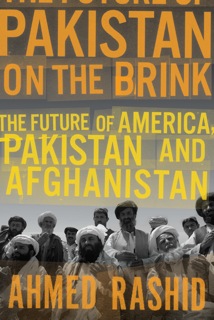
Is Pakistan a bigger problem than Afghanistan? A critical appraisal of Ahmed Rashid’s ‘Pakistan on the Brink’
Ahmed Rashid, the veteran Pakistani writer on the conflict in Afghanistan and Central Asia, has authored another book, titled Pakistan on the Brink: The Future of America, Pakistan and Afghanistan. A sequel to his four earlier books on the subject since mid-90s, especially Descent into Chaos (2008), the study underlines the precariousness of the Pakistani state’s chances for survival and the urgent need for policy resolutions. It also explains the causes of the recent deterioration in US-Pakistan relations and how they can be rectified; pinpoints factors responsible for the failure of the Obama Administration’s approach towards Pakistan and the Afghan war; and suggests ways to stabilise Pakistan and achieve a lasting peace in Afghanistan, amid the withdrawal of US and …
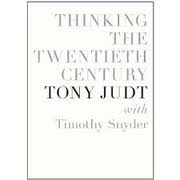
Book Review: Tony Judt’s Thinking the Twentieth Century is a must-read for politics students
After publishing Postwar in 2005, a tour de force of European history since World War II, winning the Arthur Ross Book Award for best book in international affairs and numerous other awards, Tony Judt prepared to write an ambitious intellectual and cultural history of Twentieth Century social thought. A professor of European History at New York University (NYU), founder and director of the Erich Maria Remarque Institute at NYU, frequent contributor to The New York Review of Books, and public intellectual, Judt’s plan for his next book mothballed, as personal history intervened in the form of Amyotrophic Lateral Sclerosis (ALS), otherwise known as Lou Gehrig’s disease. By late 2008, Judt no longer had use of his hands. Two years later, …

Votes for Animals!: a new book moves animal welfare from ethics to politics
Sue Donaldson and Will Kymlicka, the husband and wife authors of the new book Zoopolis: the political theory of animal rights, believe that not only should animals have basic rights but that they (or at least some of them) should be accepted as full citizens in our political communities. In doing so they move the ‘animal rights’ debate from ethics to politics. This is an intriguing topic with little application. It is a radical thesis which will appeal to almost no one. Indeed, some of its implications border on the ridiculous. Yet it is surprisingly hard to refute and will take the debate about the limits of liberal citizenship into radical new areas. The authors start from recent developments in citizenship …
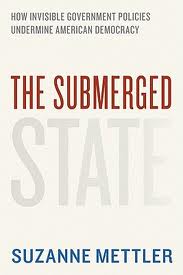
Book Review: The Submerged State: How Invisible Government Policies are Undermining American Democracy
The Submerged State: Atlantis? No, a slim and highly readable volume in which Suzanne Mettler describes how certain public policies have become highly resistant to reform and damaging to American democracy. By ‘submerged state’ Mettler means a set of indirect government subsidies and benefits whose size and beneficiaries, indeed whose very existence, is largely invisible to the public. Some types of governmental intervention are highly visible: most citizens are aware of them and know something about what they are, how they work and who benefits from them. For instance, most people know about the veterans’ benefits offered by the G.I. Bill. But others are more ‘submerged’, hidden either because they are channelled through private delivery organizations or because they come to …
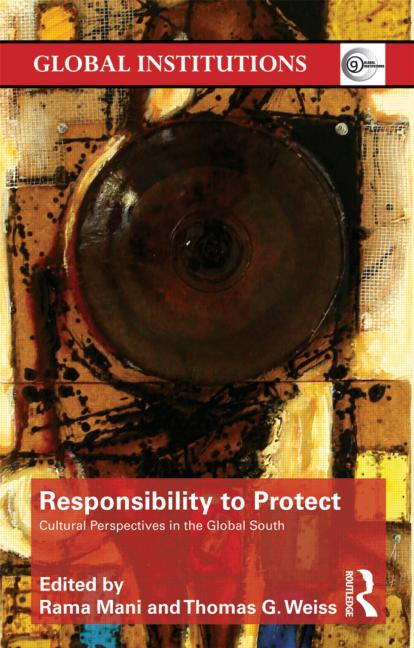
On ‘Responsibility to Protect: Cultural Perspectives in the Global South’
At the 2005 UN World Summit, more than 170 Heads of State and Government accepted three interlinked responsibilities, which together constitute the principle of ‘responsibility to protect’ (R2P). First, States accepted the responsibility to protect their own populations from genocide, war crimes, ethnic cleansing and crimes against humanity. Second, States promised to assist each other in fulfilling their domestic protection responsibilities. And third, the international community took on a collective responsibility to react, in a timely and decisive manner, if particular States are manifestly failing to protect their populations from the abovementioned mass atrocity crimes. Despite a quite remarkable normative development (see for example the frequent invocation of R2P in relation to the recent Libya crisis), this R2P principle is …
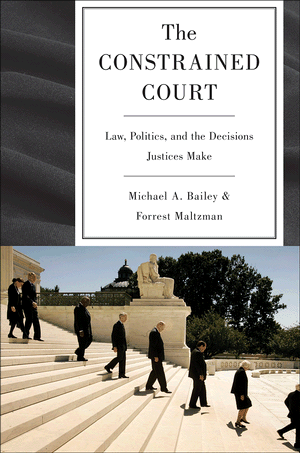
The U.S. Supreme Court and health care
Obama’s landmark health care reform legislation was perhaps the most consequential social policy change in the U.S. in several decades. And we now know that whether it will fully go into effect will depend on the views of the nine unelected, life-tenured justices of the Supreme Court. After Bush v. Gore and Citizens United many Court observers have become jaded, viewing the Court’s actions simply as extensions of politics. This view has a strong pedigree in political science and, if it is correct, it’s pretty easy to predict what will happen to the health care law: down it goes. Four justices are solidly conservative and there is little doubt about their policy preferences. A fifth, Justice Kennedy, is a …









